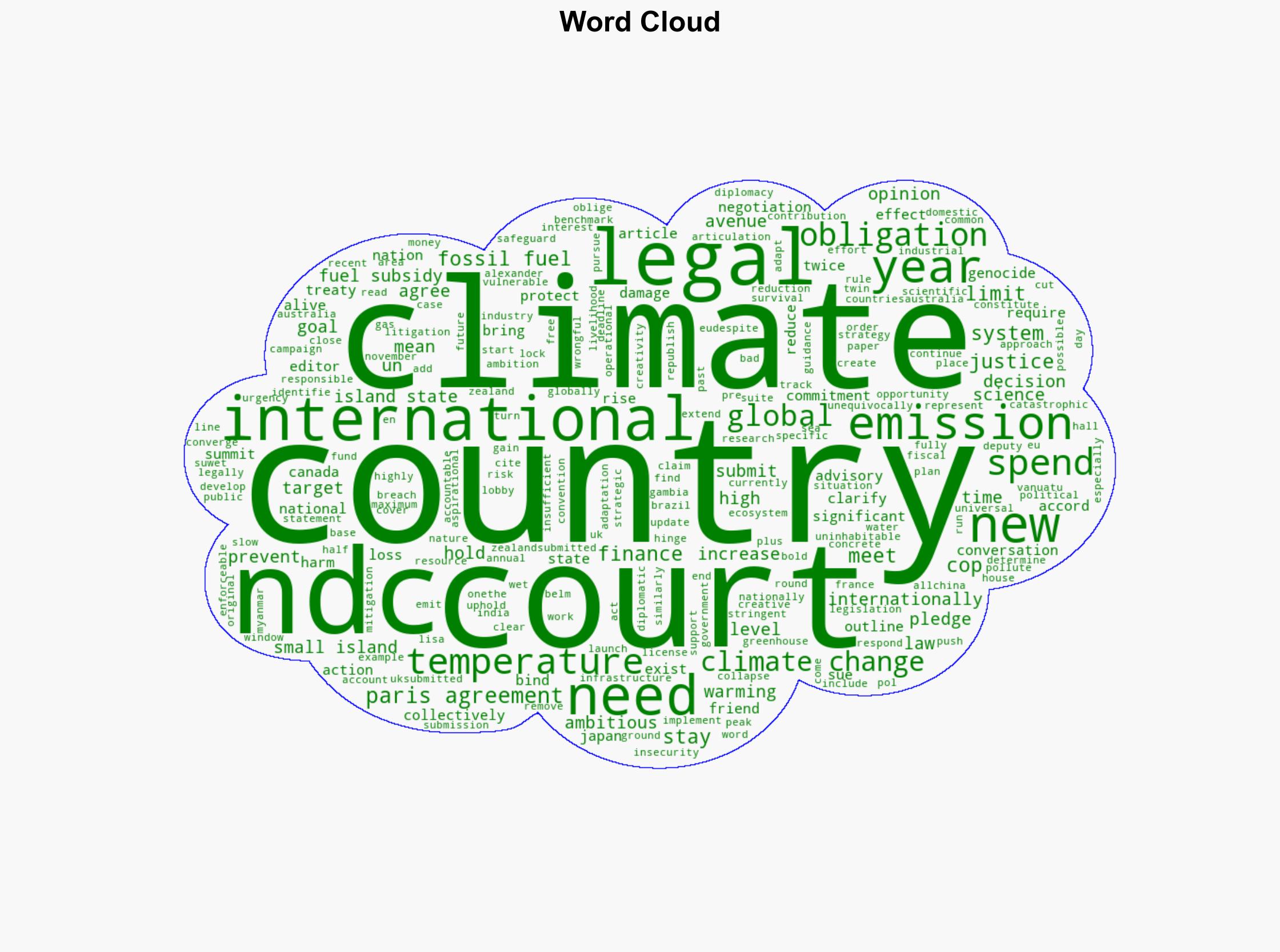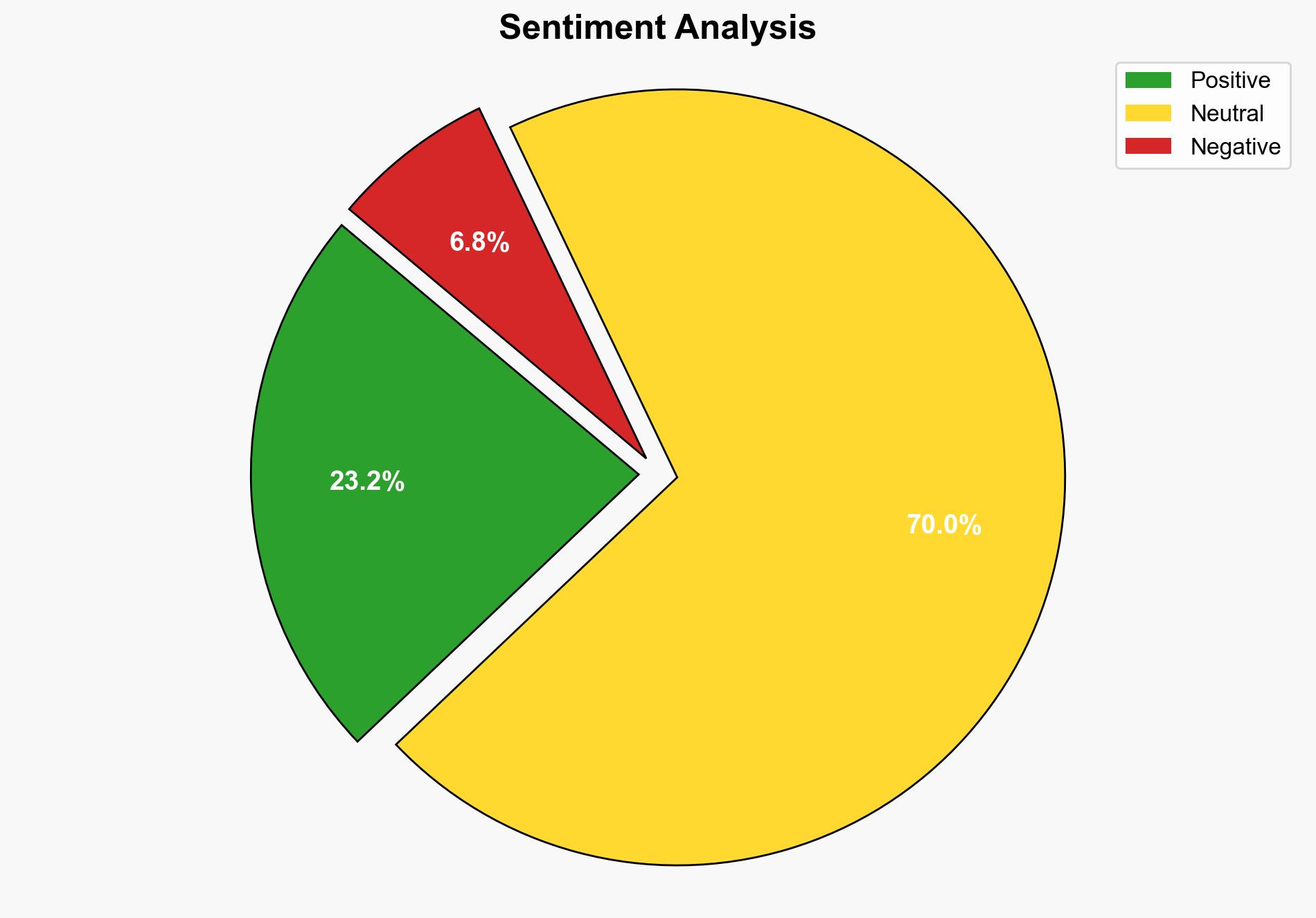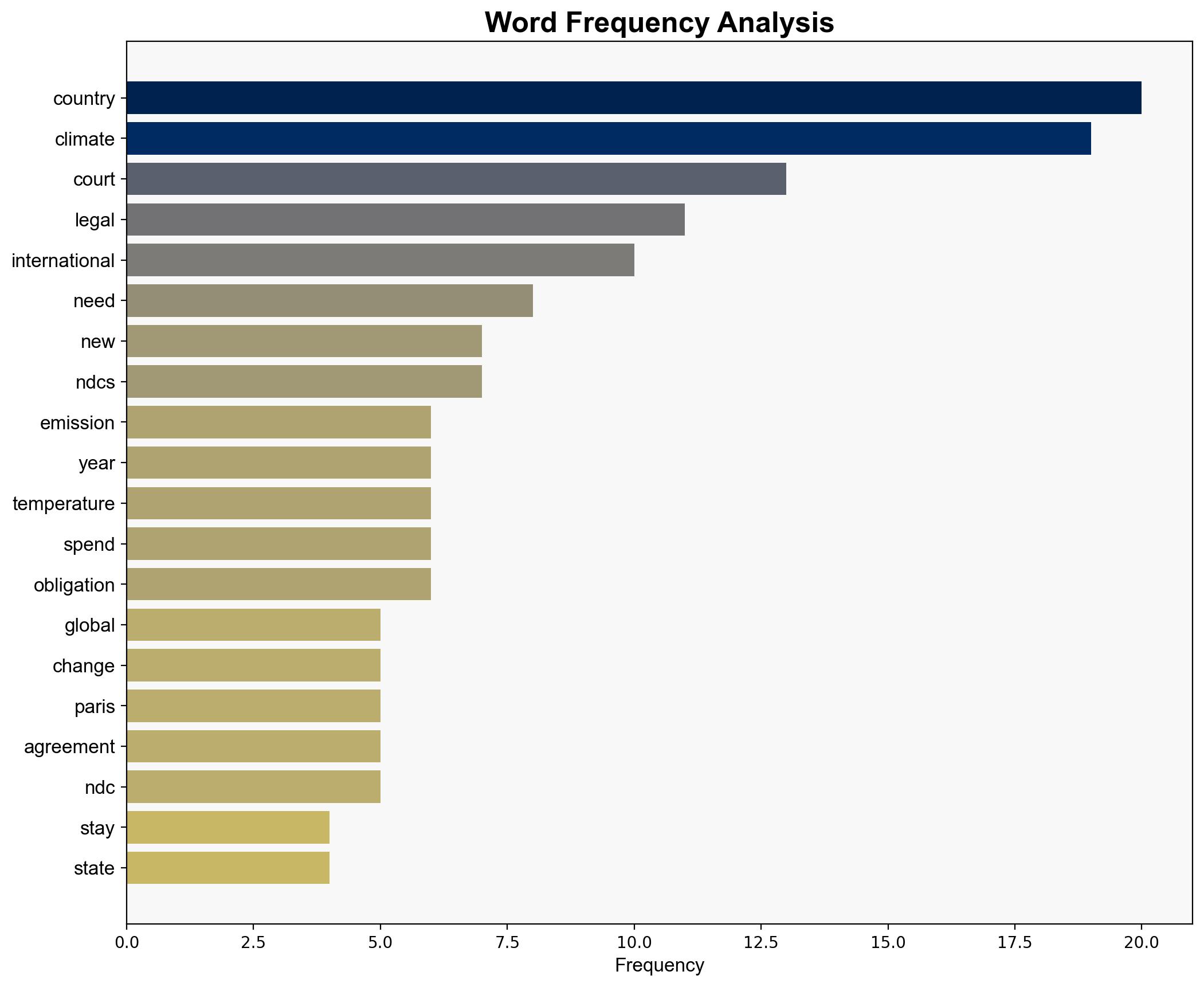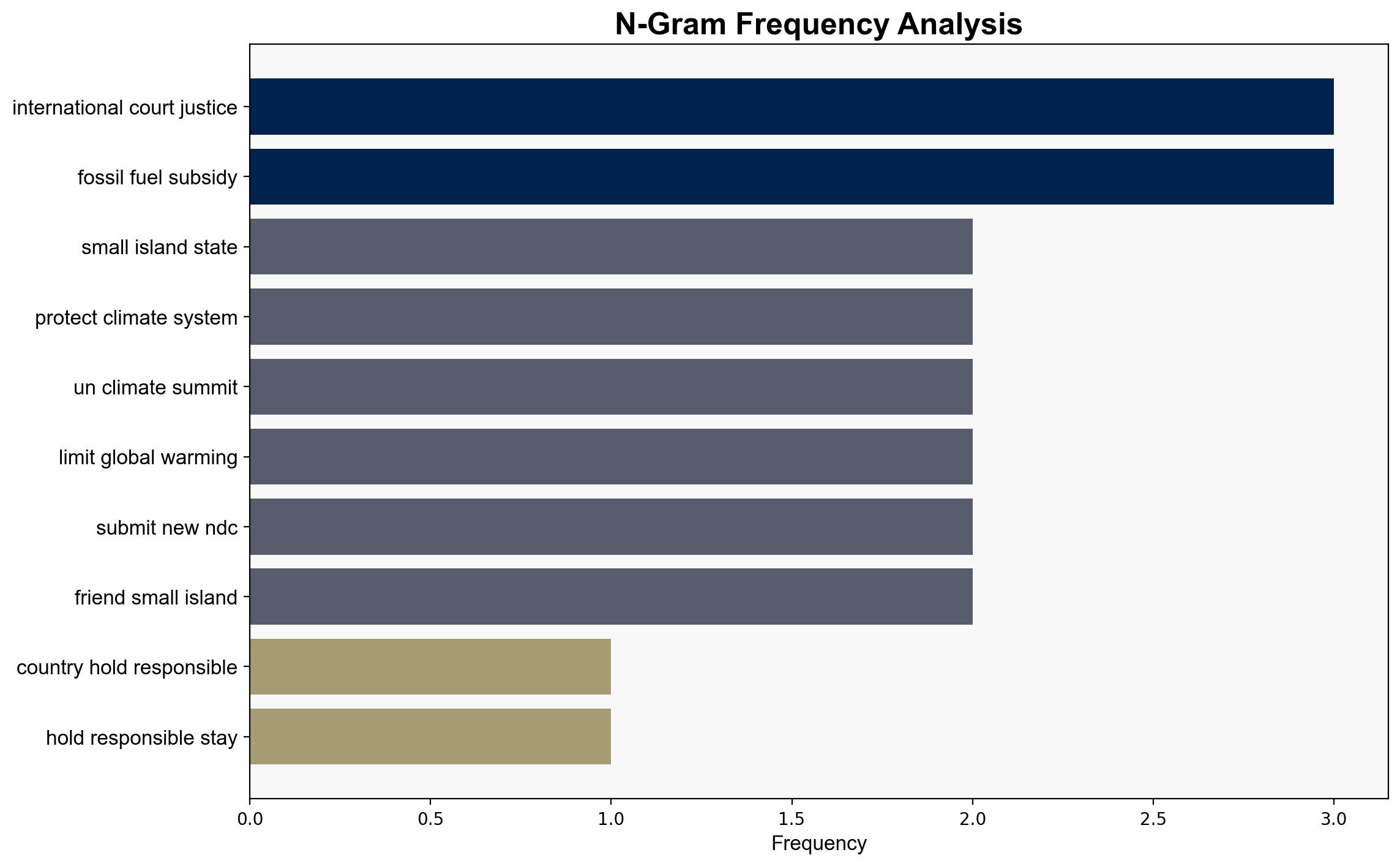How countries can be held responsible for staying within new legal climate target of 15C – Phys.Org
Published on: 2025-11-08
Intelligence Report: How countries can be held responsible for staying within new legal climate target of 1.5°C – Phys.Org
1. BLUF (Bottom Line Up Front)
The most supported hypothesis is that international legal mechanisms, such as advisory opinions from the International Court of Justice (ICJ), will enhance accountability for countries to adhere to climate targets. This is based on the increasing legal interpretations and obligations being articulated. Confidence level: Moderate. Recommended action: Strengthen international legal frameworks and encourage countries to update their Nationally Determined Contributions (NDCs) with higher ambitions.
2. Competing Hypotheses
1. **Hypothesis 1**: International legal mechanisms will effectively hold countries accountable to the 1.5°C climate target, leading to increased compliance and updated NDCs.
2. **Hypothesis 2**: Despite legal mechanisms, geopolitical interests and economic dependencies on fossil fuels will hinder significant progress in meeting the 1.5°C target.
Using the Analysis of Competing Hypotheses (ACH) 2.0, Hypothesis 1 is better supported due to recent legal developments and the ICJ’s involvement, which provide a structured path for accountability. However, Hypothesis 2 remains plausible given the historical precedence of economic interests overriding environmental commitments.
3. Key Assumptions and Red Flags
– **Assumptions**: Legal rulings will translate into actionable policies; countries will prioritize long-term climate goals over short-term economic gains.
– **Red Flags**: Potential resistance from major emitters like China and India; insufficient climate finance for developing countries; continued subsidies for fossil fuels.
– **Blind Spots**: The effectiveness of legal opinions in compelling non-compliant states; potential for legal interpretations to vary across jurisdictions.
4. Implications and Strategic Risks
– **Economic**: Transition to low-carbon economies may face resistance due to existing fossil fuel dependencies.
– **Geopolitical**: Tensions may rise between developed and developing nations over climate finance and responsibility.
– **Psychological**: Public perception of climate action may be influenced by visible legal actions, potentially increasing pressure on governments.
5. Recommendations and Outlook
- Encourage international cooperation to support legal frameworks that hold countries accountable.
- Promote transparency in NDC updates and ensure they reflect the highest possible ambition.
- Scenario Projections:
- Best Case: Countries collectively enhance NDCs, leading to significant emission reductions.
- Worst Case: Legal mechanisms fail to compel action, resulting in continued warming.
- Most Likely: Mixed compliance with some countries leading by example, while others lag due to economic constraints.
6. Key Individuals and Entities
– Lisa Lock
– Alexander Pol
– International Court of Justice (ICJ)
– Small Island States
7. Thematic Tags
climate change, international law, environmental policy, global governance





